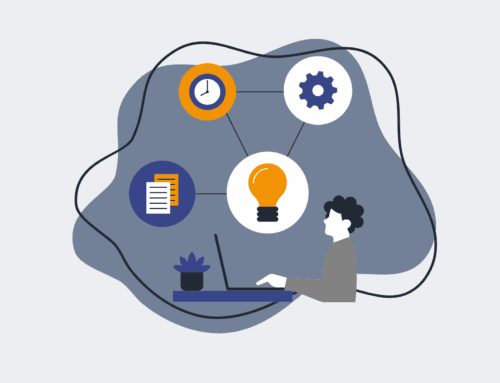Is AI Resume Parsing Killing Creativity in Hiring or Unleashing It?
The rise of artificial intelligence in recruitment has sparked a vigorous debate: is AI resume parsing stifling the nuanced art of hiring, or is it liberating recruiters to focus on truly creative, human-centric tasks? For business leaders, HR directors, and recruiting professionals, understanding this dynamic is crucial for leveraging AI effectively, rather than succumbing to its potential pitfalls. At 4Spot Consulting, we believe the answer lies not in fear, but in strategic implementation.
For decades, the initial sift through a mountain of resumes has been a tedious, often biased, and incredibly time-consuming exercise. Recruiters, armed with keyword searches and gut feelings, would spend countless hours trying to identify potential candidates, often missing hidden gems or succumbing to unconscious biases. Enter AI resume parsing, a technology designed to automate this initial screening, extracting key information, ranking candidates, and flagging relevant skills at lightning speed. On the surface, it seems like a straightforward efficiency play – and in many ways, it is.
The Double-Edged Sword: Initial Concerns and Perceived Limitations
When AI first started penetrating the hiring landscape, many feared a future where algorithms dictated talent acquisition, reducing human potential to a series of data points. Critics argued that AI parsing could:
- **Kill Creativity in Candidate Discovery:** By focusing on exact keywords and predefined criteria, AI might overlook candidates with unconventional backgrounds, transferable skills, or unique experiences that don’t fit a rigid template. This could lead to a homogenous workforce, devoid of the innovative perspectives that often come from diverse, non-linear career paths.
- **Perpetuate Bias:** If an AI is trained on historical hiring data, it can inadvertently learn and perpetuate existing human biases. If past successful candidates predominantly shared certain demographics or educational backgrounds, the AI might unconsciously favor similar profiles, even if those characteristics are not predictive of future performance.
- **Dehumanize the Process:** The emphasis on data and algorithms could strip away the human element of recruiting, turning it into a transactional process rather than a relationship-building one. Candidates might feel like a number, and recruiters might lose the intuition developed over years of interacting with people.
These concerns are valid and highlight the importance of careful design and oversight. Without a strategic approach, AI parsing can indeed narrow the talent pool and stifle the very creativity businesses need to thrive.
Beyond the Buzz: Unleashing Creativity Through Strategic AI Implementation
However, the narrative isn’t solely one of caution. When implemented with foresight and a clear understanding of human-AI collaboration, AI resume parsing can become a powerful tool that *unleashes* creativity in hiring, rather than suppressing it. This is where 4Spot Consulting’s expertise in automation and AI integration truly shines.
Automating the Mundane to Elevate the Strategic
The primary benefit of AI parsing, when applied correctly, is its ability to eliminate low-value, repetitive work. Imagine the hundreds of hours saved annually by automating the initial resume screen. These aren’t just hours; they’re cognitive resources that can be redirected towards higher-order tasks:
- **Deep Candidate Engagement:** Recruiters gain more time to conduct thorough interviews, engage in meaningful conversations, and truly understand a candidate’s motivations, aspirations, and cultural fit. This shift from transactional screening to strategic relationship-building is where human creativity flourishes.
- **Proactive Sourcing and Talent Scouting:** Instead of reacting to applications, recruiters can spend more time proactively seeking out passive candidates, building talent pipelines, and exploring new channels for recruitment. This strategic sourcing requires creativity, intuition, and a deep understanding of market dynamics.
- **Innovative Interview Design:** Freed from data entry, HR teams can dedicate resources to designing more engaging, insightful, and predictive interview processes, including skill assessments, situational judgment tests, and team-based challenges that reveal true potential and problem-solving abilities.
- **Focus on Diversity & Inclusion Initiatives:** With bias-mitigation strategies built into AI tools, and the human element empowered to review a broader, AI-filtered pool, recruiters can consciously work to diversify their talent pools and challenge traditional hiring norms, fostering truly creative and inclusive environments.
Our work with clients demonstrates this transformation. We helped an HR tech client save over 150 hours per month by automating their resume intake and parsing process using Make.com and AI enrichment, then syncing to Keap CRM. This wasn’t about replacing recruiters; it was about empowering them to do more meaningful work.
The 4Spot Consulting Approach: AI as an Enabler, Not a Replacement
At 4Spot Consulting, our OpsMesh framework ensures that AI tools like resume parsing are integrated strategically, not just for the sake of technology. We look at the entire operational ecosystem, from HR and recruiting to CRM and data management, to create seamless, intelligent workflows. Our goal isn’t just to save you 25% of your day; it’s to free up your team to focus on the strategic decisions and human interactions that genuinely drive growth and innovation.
AI resume parsing, when approached with a clear strategy and an understanding of its capabilities and limitations, is not killing creativity. Instead, it’s a powerful catalyst, removing the drudgery and enabling recruiters and hiring managers to exercise their creativity where it matters most: in identifying, engaging, and securing the diverse, innovative talent that will define the future of their organizations. The key is to design systems where human insight and AI efficiency work in concert, creating a hiring process that is both intelligent and deeply human.
If you would like to read more, we recommend this article: The Future of AI in Business: A Comprehensive Guide to Strategic Implementation and Ethical Governance









